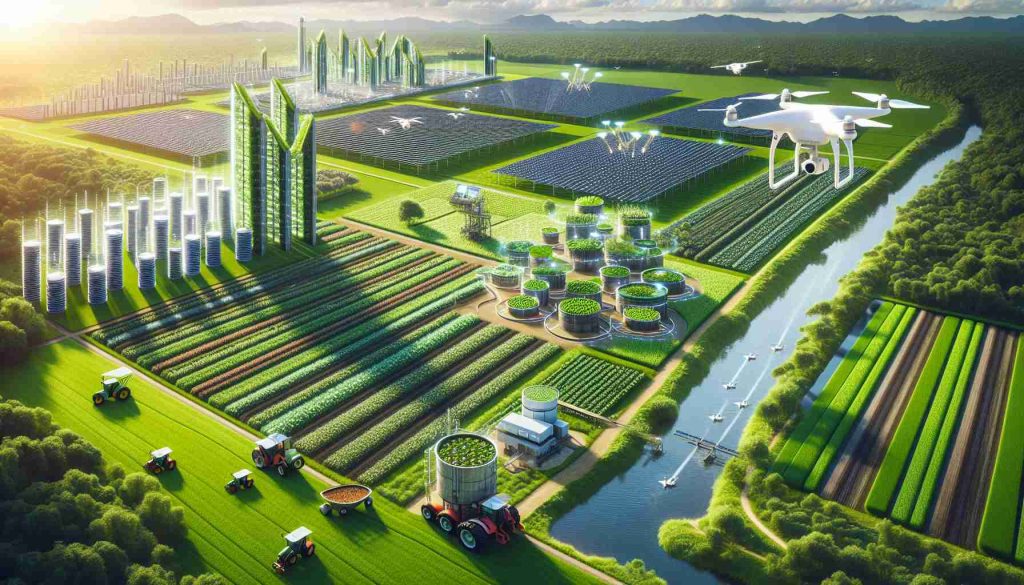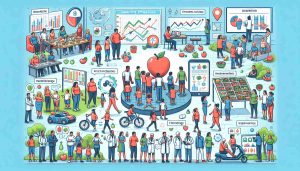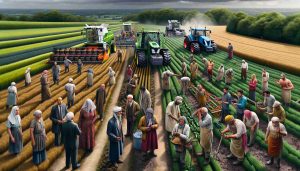The Future of Agriculture: Embracing Sustainable Solutions
3 min read
Agricultural companies are shifting their strategies to prioritize eco-friendly practices in response to advancements in technology aimed at reducing the reliance on herbicides. This shift represents a monumental change in the industry’s approach to crop management. Rather than relying solely on traditional chemical solutions, companies are seeking innovative ways to promote sustainability while maintaining crop productivity.
Embracing cutting-edge technologies is key to this transformation. By incorporating precision farming techniques and data-driven insights, farmers can target specific areas in their fields that require attention, minimizing the overall use of herbicides. This approach not only benefits the environment by reducing chemical runoff but also aids in preserving soil health for future generations.
In addition to technological advancements, companies are also investing in research and development of alternative solutions. From plant-based treatments to biological pest control methods, the agricultural sector is exploring a wide range of options to reduce herbicide usage. This proactive approach demonstrates a commitment to sustainable practices and a willingness to adapt to the evolving needs of the industry.
Overall, the shift towards sustainable agriculture marks a progressive step in the right direction. By prioritizing eco-conscious practices and embracing innovative solutions, agricultural companies are paving the way for a more environmentally friendly future in crop management.
The Future of Agriculture: Navigating the Path to Sustainable Farming
As agricultural companies forge ahead in their quest to adopt sustainable practices, several key questions arise to steer the conversation towards a more comprehensive understanding of the future of agriculture.
What role does consumer demand play in driving the shift towards sustainable agriculture? Consumer preferences for ethically sourced and environmentally friendly products are increasingly shaping the agricultural landscape. As more individuals prioritize sustainability in their purchasing choices, farmers and companies are compelled to adapt their practices to meet these demands, driving the need for sustainable solutions.
How do socio-economic factors influence the adoption of sustainable agricultural practices? While the benefits of sustainable farming are evident, challenges such as initial investment costs and access to resources may hinder widespread adoption. Addressing these socio-economic factors is crucial to ensuring that sustainable solutions are accessible and viable for farmers of all scales.
What are the potential advantages and disadvantages of transitioning to sustainable agriculture? Embracing sustainable farming practices can lead to improved soil health, reduced environmental impact, and enhanced biodiversity. However, challenges such as the need for specialized knowledge, potential yield fluctuations during transition periods, and market uncertainties may present obstacles for farmers seeking to make the shift.
Key challenges and controversies within the realm of sustainable agriculture encompass debates around the effectiveness of alternative pest control methods, the scalability of sustainable practices to meet global food demands, and the long-term economic viability of sustainable farming models. These issues underscore the complexities inherent in transitioning towards a more sustainable agricultural sector.
To delve deeper into the future of agriculture and explore innovative solutions, the Food and Agriculture Organization (FAO) provides valuable insights and resources on sustainable farming practices at a global scale. Engaging with organizations such as the FAO can offer a broader perspective on the challenges and opportunities surrounding sustainable agriculture and inspire collaborative efforts towards a more resilient and environmentally conscious future in farming.






